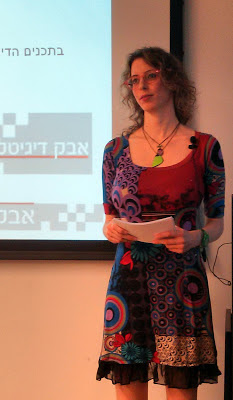Information published in obituaries is useful not only for friends and relatives of the deceased, but also for strangers intending to steal the deceased's identity. Obituaries generously provide potential thieves with another aspect of useful information: when will the relevant people be away from their homes, for attending a funeral, a wake or a viewing. The thieves take advantage and use this opportunity to steal physical objects which will both provide them with additional information, and help them tie themselves to the identity of the deceased at a later stage. In some cases, upon breaking into a home, items of financial value will not be stolen - only items related to the identity being stolen: a birth certificate, an ID card, a social security card and a driver's licence.
One such case of a posthumous stolen identity which made headlines in 2012, is of an illegal immigrant who worked for 20 years as an international airport security supervisor in New Jersey - under the identity of a person murdered in 1992. He passed background checks as he had all the documents required, including a birth certificate and a social security card.
Another case, which made headlines in 2011, is of a Bulgarian man, who for 15 years used the stolen name and birth date of an American toddler who was kidnapped and murdered when he was three years old, in 1982. This was revealed thanks to a routine check up performed by the U.S. State Department's Diplomatic Security Service, called "Operation Death Match": comparing passport applications to state death certificates. Thanks to this program, more than 150 stolen identities of the deceased were revealed, including that of a 41 years old Englishman who went under the identity of an American who passed away in 1994.
In order to avoid "human ghosts" using the persona of someone dear to you who passed away, these article, video and post recommend that you minimize the data about the deceased you publish online, and notify all relevant parties, including credit card companies, banks and local and governmental authorities, of his or her passing.
The second, and darker, angle of the ugly side of Digital Death is Death Trolling - a phenomenon which ranked seven in the list of the ten most disturbing online communities you might come across, published in August 2012 in the American website "The Next Web" (Thank you Ayeley Yagil for sending me this link).
Luckily, I haven't come across this sickening, revolting phenomenon in person, of memorial pages and commemoration sites, targeted for destruction and bullying which add sorrow upon sorrow and pain upon pain - as in this case, when a memorial website for a 17 years old who killed herself in the US was mutilated.
Sean Duffy displayed even greater cruelty and evilness: an English "Death Troll" who looked up children's memorial websites in order to mutilate them. He created horrible things such as a Youtube video in which the face of a 15 years old girl, who committed suicide on railway tracks, were placed on a moving train, with the soundtrack of "Thomas the Tank Engine" in the background.
In another appalling case, he wrote to the mother of a 14 years old girl who died of an epileptic seizure: "Help me Mummy, it’s hot in Hell".
I admit it's not easy for me to put these atrocities in writing.
Sean was arrested and jailed for 18 weeks - too short of a sentence, if you ask me. He was also banned from using social networking sites for five years - I wonder how this prohibition can be enforced.
An earlier mention of this terrible phenomenon appears in NBC's news broadcast from March 2010 (Thank you Dr. Carmel Vaisman for sending me this link). They are addressing the same case of the 17 years old girl from the US, including quotes which are difficult to view: she committed suicide by hanging, and horrible cruelty was directed at her family as they were harassed by death trolls, bombarding them with multiple images of ropes and written remarks which included the word "hanging". The death trolls behaved in an even more appalling manner - which got omitted from this news coverage, in order to spare the viewers feelings , as can be seen (I mean, not seen) in this piece:
NBC mention another - and earlier - horrifying case, from 2006, which received more media coverage - "earning" an 18 years old girl, killed in the US in a car crash when she lost control over the vehicle she was driving, her own Wikpedia entry.
Photographs taken by Highway Patrol officers at the site of the crash later leaked to the Internet. They were not only posted and reposted online, but in an act of extraordinary cruelty, were sent to her family as attachments to email messages, under false, innocent headlines. They were cyber bullied so forcefully the family stopped using the internet all together for a while, took their other daughter out of school and put her into home-schooling. In this case too, the pictures fall under the category of images unfit for showing on TV - but, as it turns out, sadly for us all, can be shown online.





















